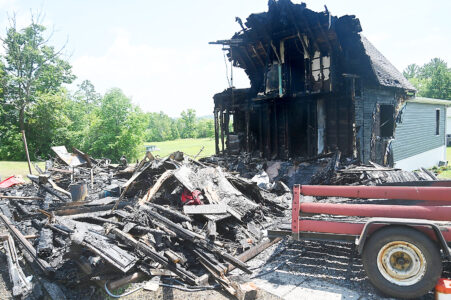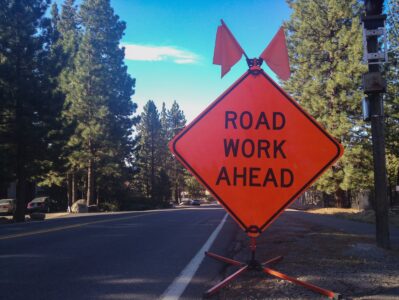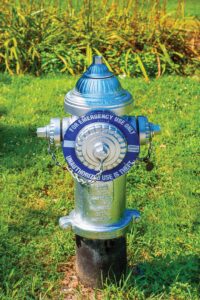Court rejects Hollidaysburg Community Watchdog group’s appeals
Organization claims violation of Sunshine Act during probe

Metro
The Pennsylvania Commonwealth Court has rejected two appeals filed by the Hollidaysburg Community Watchdog group that challenged the continued funding of the local volunteer fire department after two of its members were convicted of embezzling federal funds.
The embezzlement charges resulted from the theft of $1.5 million of a $5.2 million federal grant that was to be used to recruit new firefighters for 32 departments that participated in the Allegheny Mountain Firefighters Initiative.
The coordinator of the funding was a veteran fireman for the Phoenix Volunteer Fire Department who took responsibility for the theft and who was sentenced to 46 months in prison by federal District Judge Kim R. Gibson.
Benjamin Allen Rhine was released from prison in 2023.
The department’s former chief, Anthony J. DiBona, was placed on home detention as the result of the investigation into the thefts.
The Hollidaysburg Community Watchdog is an organization with offices at 511 Allegheny St. in the borough, which, according to the Commonwealth Court, has as its purpose “to deter misconduct and corruption in local government.”
The group, whose leader is Richard Latker, has been involved in many investigations over the last few years and sought to be an active participant in discussions when Borough Council considered whether to continue its funding for the fire department.
That effort, however, was thwarted when the borough’s Phoenix Volunteer Fire Department Committee held closed meetings.
The Watchdog ended up filing two legal complaints, contending the borough and the fire department committee violated Pennsylvania’s Sunshine Act.
A panel of the Commonwealth Court that included Judges Anne E. Covey, Renee Cohn Jubelirer and Patricia A. McCullough noted that “Latker averred that the PVFD Committee conducted closed-door meetings which resulted in restoration of (fire company) funding following a Borough Council vote at a public meeting on Dec. 9, 2021.”
Latker, representing the Watchdog, asked, in one petition, that the Court of Common Pleas invalidate the Borough Council vote to restore fire department funding due to the alleged Sunshine Act violations.
The borough denied it violated the Sunshine Act, contending the closed-door sessions with the fire company committee were not meetings but “conferences” that did not violate the Sunshine Act.
In a second legal complaint filed in Dec. 27, 2022, the Watchdog charged the borough “intentionally destroyed records that HCW was entitled to under the Right-to-Know Law and that HCW required for its investigation of the borough’s public expenditures on the (fire company).”
It also charged that the funds disbursed to the fire company violated the borough code.
The borough responded that the legal complaint was legally insufficient and that the Watchdog group lacked standing to sue.
When the two lawsuits were heard in the Blair County Court of Common Pleas, the visiting judge presiding over the proceedings, Judge Thomas S. Ling of Bedford County, ruled in favor of the borough.
He ruled that even if improper negotiations preceded the vote by Borough Council, “that will not give rise to a claim under the Sunshine Act.
“The Sunshine Act does not authorize courts to invalidate official action taken at a subsequent meeting that conforms to the Sunshine Act’s requirements, based on an earlier, improper closed-door meeting.”
The Commonwealth Court panel agreed and stated, “because Borough Council presented the (fire department’s committee) proposal at the Dec. 9, 2021, public meeting, any proposed Sunshine Act violation by the committee was cured.”
Addressing the second lawsuit and the contention by the borough that the Watchdog did not have legal standing to sue the borough, Ling explained that taxpayer groups can bring suit if there are “no other persons better situated to assert the claim.”
Ling concluded that was not the case in this situation.
“Other agencies can act in this case. The federal government intervened in the case, which is what began the action.
“The Attorney General and County District Attorney have authority in this matter. The trial court appreciates (HCW’s) desire for good government, but it does not appear the law supports its position.”
The Commonwealth Court panel agreed with Ling’s explanation.
In its presentation to the appeals court, the Watchdog group argued that, while local law enforcement is effective in prosecuting criminal cases, “it has traditionally shown no inclination to investigate official misconduct, with the sole exceptions of direct embezzlement from the treasury and police abuses.”
The Watchdog is the only organization, aside from the police “constituted specifically to investigate and pursue complaints of government misconduct,” according to the Watchdog.
It pointed out that the group “always reports suspicion of illegalities to the police and, where appropriate, to the District Attorney.”
The Commonwealth Court, however, did not overrule Ling, stating the Watchdog can always bring suspicions of wrongdoing to police, or otherwise “may seek to remedy their concerns by way of the ballot box.”
But the appeals court concluded that the Watchdog group lacks standing to pursue its lawsuit.
The Watchdog has the option of seeking review by the Supreme Court, but Latker indicated the most prudent step at this point may be to seek a review by a full Commonwealth Court as opposed to a three-member panel.
The opinions were written by Judge Covey.





